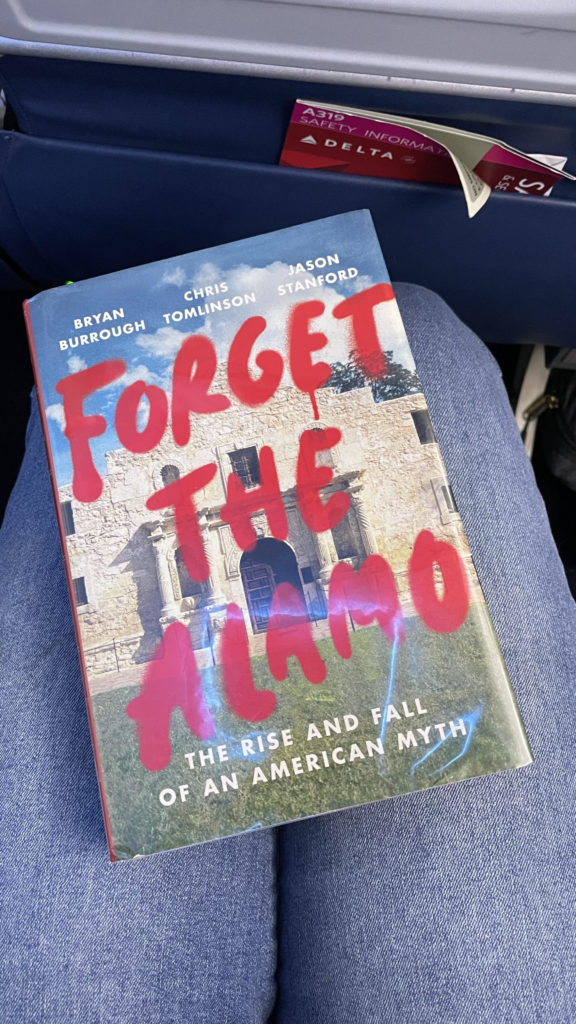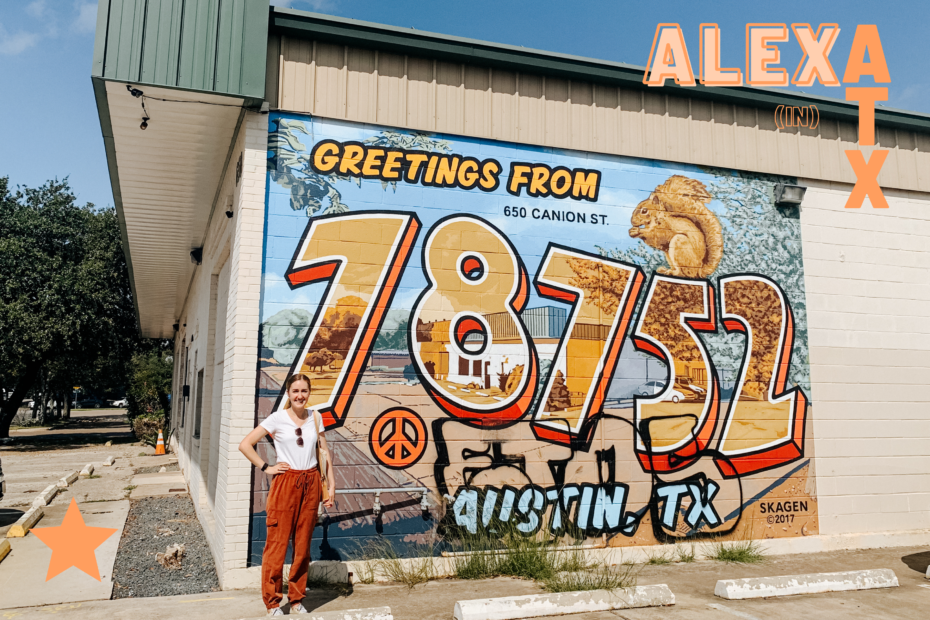Forget the Alamo Book, Volunteering, and More
// Week of Jan 10 //
Alexa here, back from the holidays and ready for a new semester! I also have plans to learn more about being a sustainable and equitable citizen this spring–and those plans include breakfast tacos.
Over the past few weeks, I’ve been reading, volunteering and getting ready for the new semester. Here’s what I’ve learned.
Forget the Alamo: Redefining a Texas Legend
At the beginning of last semester, I proudly wrote about the giant stack of books that I planned to read about Austin and Texas. I’m a bit embarrassed to admit that I only read a few of those books before they were due (and the Austin Public Library system has a quite generous renewal policy).
When I checked those books out, I also put myself on the waiting list for the red hot 2021 release Forget the Alamo. By the end of the semester, I was at the top of the list, and I was able to check out the book before heading home for the holidays.
Forget the Alamo questions the dominant narrative surrounding the Alamo: that Texans valiantly fought for their freedom and were ultimately defeater by cruel, oppressive Mexican forces.
If you’re not familiar, the Alamo is a church, a battle, and a symbol. Well really, it’s a compound. The most famous battle of the Texas Revolt, when Texas left Mexico to become its own country, occurred at the Alamo compound. Today, the church at the compound, in the heart of San Antonio, is a symbol of Texas and freedom, among other things.
Forget the Alamo questions the dominant narrative surrounding the Alamo: that Texans valiantly fought for their freedom and were ultimately defeated by cruel, oppressive Mexican forces. In its place, the authors reveal the true story of the Alamo: a battle in which colonists in modern-day Texas fought to protect the economic institution of slavery–an institution that the Republic of Mexico opposed.
The fact that Forget the Alamo was published in the middle of America’s racial reckoning can’t go unnoticed. The book forces America, and particularly Texans, to look one of its most enduring symbols of freedom, but also white supremacy, dead in the eye.
Overall, I really enjoyed the book. The first half, which gave a history of the events leading up to and after the Battle of the Alamo, took some perseverance to get through–lots of names and dates, but still more entertaining than an AP US History textbook. The most interesting part of the book was the second half, which traced how the Alamo became so iconic–and how our understanding of it has been so wrong.
Not only has the narrative around the Alamo ignored the fact that US colonists were fighting to preserve slavery, but it has largely left out the Tejano (Mexicans in Texas) and Mexican parts of the story. And what I really found most interesting was that the true story of the Alamo, including the idiocy of those deemed heroes at the battle and the desperate attempts to preserve the compound, is immensely more interesting and complex than the mythical narrative that’s been pushed by so many.
Yes, the book was written by three white men. But at least they are Texans, and they did their research well. The title of the book, of course, is an affront to the saying, “Remember the Alamo!” But we can’t forget the Alamo, because it’s an example of the work that our country has to do in reckoning with our legacy of slavery and racism. Although I’ll admit that, “Replace the dominant Alamo narrative!” is not a very catchy book title.

Volunteering and Plans for the Semester
Last week, I volunteered with Texas Rio Grande Legal Aid, and had a great experience! I was working on pending litigation. I’m excited to continue doing pro bono work this semester.
Our classes are starting online this month because Austin is in a Stage 5 health alert. Of course, online classes aren’t ideal, but I am happy to do what I can to slow the spread of the virus when case numbers and hospitalizations are so high.
I’m also excited about eating more sustainably. A friend and I have gone to the Texas Farmer’s Market several times in the past few months, but haven’t always been able to find produce (although we’re not complaining about the abundance of fresh bread). So, we’re going to try some local, sustainable produce subscriptions.
Be sure to check back in two weeks to hear how it goes!
- College Football, Ariana Grande, and Water - September 3, 2023
- Livestock and Land Use: How Are We Feeding The Planet? Impactfull April 2022 - April 19, 2022
- What Does Voluntourism Look Like? A Case Study in a Cambodian Orphanage - March 28, 2022
